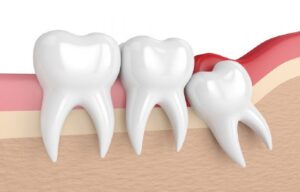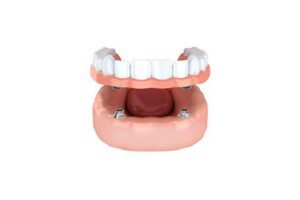Why Medical Cannabis Should Be a Valid Option for Acute Pain
3 min read
Utah surprised a lot of people when voters approved a medical cannabis ballot proposition a number of years ago. They did it again in 2022 when lawmakers approved acute pain as a qualifying condition. It should be noted that acute pain is not on the list in every state with a medical cannabis program.
The question for state lawmakers is whether medical cannabis should be a valid option to treat acute pain. Despite not being a cannabis user myself, I am in full support of making acute pain a qualifying condition. My reasoning lies more in the alternatives than medical cannabis itself.
Acute vs. Chronic Pain
Chronic pain is one of those conditions that most states include on their medical cannabis lists. Chronic pain is pain that is felt daily or almost daily for a minimum of three months. Anything short of that threshold is considered acute pain.
A common example of acute pain is pain resulting from surgery. Anyone who has undergone hip replacement surgery, for example, can testify to the fact that acute pain can be very severe. It might not last for three months, but it can be pretty intense for as long as it does last.
The point of offering medical cannabis as a treatment for acute pain is to give patients and their doctors another option. It is an option offered alongside over the counter (OTC) pain relievers and prescription painkillers.
Why It’s a Good Option
I contend that medical cannabis is a good option for some types of acute pain due to the inherent weaknesses of the other choices. OTC pain relievers can offer some relief, but there are plenty of instances in which they barely take the edge off severe acute pain.
As for prescription painkillers, we all know what that means: narcotics. There are plenty of people who do not even want to go down that road. If I were being scheduled for hip replacement surgery, I would be one of them. I have used prescription painkillers only twice in my life and both times were very bad experiences. I have no desire to repeat those experiences.
How It Works in Utah
Anyone who is concerned about how offering the medical cannabis option would work can take a look at Utah. State lawmakers have done a particularly good job of crafting a rule that satisfies everyone involved. For starters, patients still need to obtain medical cannabis cards to use cannabis as an alternative.
Second, the pain in question must be pain for which a doctor would otherwise prescribe painkillers. That eliminates the temptation to throw around medical cannabis as an alternative for minor dental treatments, minor dermatological treatments, etc. Beehive Farmacy in Salt Lake City says the surgery scenario is the best way to illustrate how it works in Utah.
Knee Replacement Surgery
Imagine a Utah resident being scheduled for knee replacement surgery. His doctor tells him that prescription medications will help alleviate the pain during recovery. The patient isn’t so sure, so he asks about medical cannabis. His doctor agrees.
He and his doctor then work together to arrange for a medical cannabis card in advance of the surgery. The patient also obtains his cannabis just prior to the surgery. During recovery, he treats with cannabis and thereby avoids an opioid prescription. Once he is fully recovered, he cancels his card and that’s that.
Acute pain normally treated via OTC pain relievers and prescription medications can also be treated with medical cannabis. From my point of view, cannabis ought to be an option for most acute pain scenarios.





